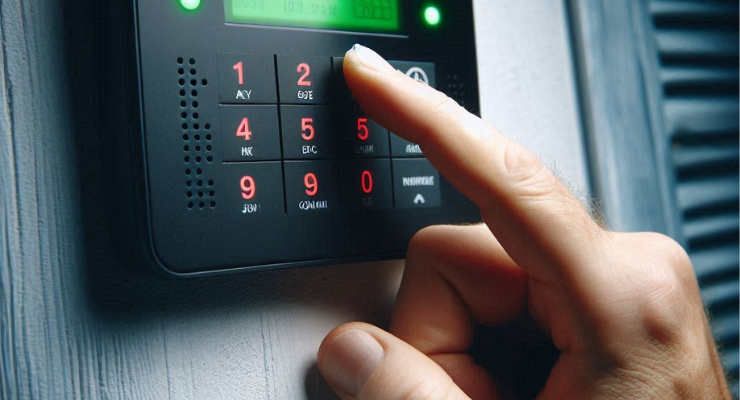Fast read
Smart homes offer a range of enhanced security features, including smart locks that can be controlled remotely, smart surveillance equipment that can be accessed from anywhere, smart lighting and blinds that can create the impression that someone is home, and smart network security to protect the central device from hackers.
They remove the need for traditional keys and allow homeowners to control when doors are locked and unlocked remotely. If smart surveillance allows for live and recorded footage to be accessed from anywhere and for notifications to be sent if there is movement or sound.
Smart lighting and blinds can create the impression that someone is home, and smart network security protects the central device and home network from outside entities.
Do smart homes offer special security system features?
One of the most significant advantages that smart homes provide is enhanced security features. An innovative home security system makes your home as safe and secure as possible with specific features such as smart locks, smart surveillance equipment, smart lighting, and smart network security.
Locks
A smart lock removes the need for house keys. The system is designed to unlock and lock doors through the central device, an integral part of the smart home security system. Homeowners can control when the connected doors lock and unlock with the click of a button. This is a great security feature for several reasons.
For example, you won’t have to carry your keys anymore. This eliminates the chance of someone stealing or losing your keys since you can unlock your doors using your phone. Additionally, if you set up security cameras and notice something suspicious, you can swiftly lock all the doors in the house from one spot without needing to manually run through the house.
These are just some of the security benefits that smart locks provide.
Surveillance
If you have traditional security cameras, you know the pain of having to rewind your digital camera footage to find the specific time frame or camera of what you are looking for.
Smart surveillance removes this time-consuming process. With smart surveillance, you can watch live and recorded footage from anywhere worldwide through your connected device. Furthermore, you can set up your cameras to send notifications if they detect movement or sound.
For example, if your family is going away for a week, you can be notified about every movement in your home. However, if something were to happen while you were out, with traditional cameras, you probably would not learn until you get home, then have to go through all the footage to determine what happened and when it happened.
If you have smart surveillance, you would know immediately and then have the chance to take the necessary steps to deal with the situation as soon as possible.

Even lighting and blinds can become “smart”
Smart lighting and smart blinds, when used together, can create a great security feature. While not designed for security purposes, using the central device to adjust the lighting and move the blinds up and down can create an impression that someone is home when they are actually out.
Smart network security
Along with the rise of the popularity of smart homes has been the rise of virtual assistant technology, like ‘Alexa‘ and ‘Google Home‘. However, one of the main concerns with these virtual assistants is that they record knowledge of you in your own home without your knowledge or approval.
This is why your smart home internet network needs to have its own strong security. Smart network security protects your centralised device from hackers and other outside entities trying to take control.
This makes this security feature regarding your internet services the most crucial aspect of a smart home. If someone were to hack the central device, they would gain control of all your smart home devices.
Your smart network security should be connected to your home network to secure a safe, smart home security foundation. By doing so, the network security can also act as a monitoring system, manageable from anywhere from your centralised device.
So if a smart device goes down and loses connection, you can be notified in real-time and take appropriate steps to reset the system.

Smart home security system
If you are looking into upgrading your home to a smart home, the three security features of smart surveillance, smart locks, and smart network security should be at the top of your list of smart devices to obtain.
If you make the smart decision to purchase these three devices, you have all the necessary instruments to make your home safer and more secure.



